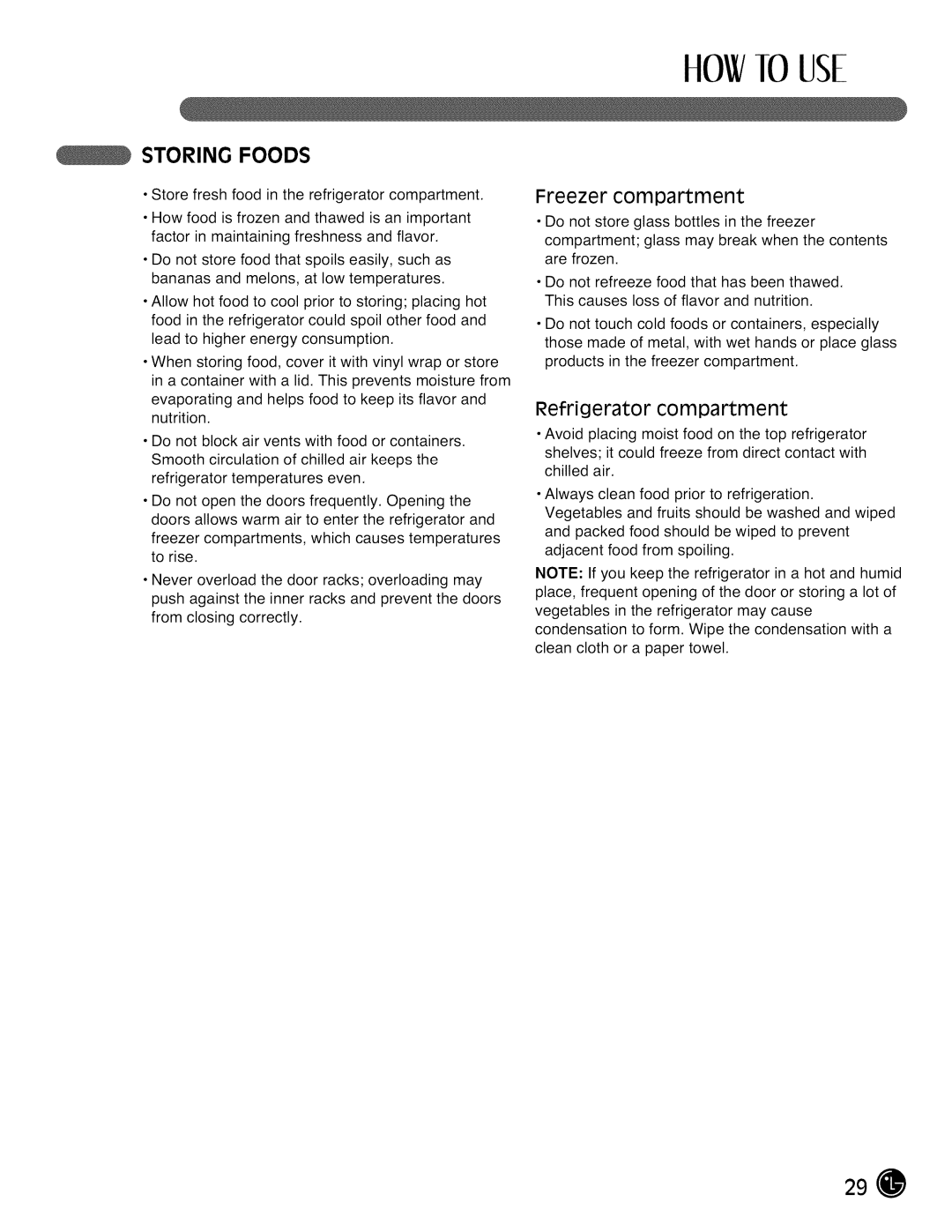
ttOWlO USE
STORING FOODS
•Store fresh food in the refrigerator compartment.
•How food is frozen and thawed is an important factor in maintaining freshness and flavor.
•Do not store food that spoils easily, such as bananas and melons, at low temperatures.
•Allow hot food to cool prior to storing; placing hot food in the refrigerator could spoil other food and lead to higher energy consumption.
•When storing food, cover it with vinyl wrap or store in a container with a lid. This prevents moisture from
evaporating and helps food to keep its flavor and nutrition.
•Do not block air vents with food or containers. Smooth circulation of chilled air keeps the refrigerator temperatures even.
•Do not open the doors frequently. Opening the doors allows warm air to enter the refrigerator and freezer compartments, which causes temperatures to rise.
•Never overload the door racks; overloading may push against the inner racks and prevent the doors from closing correctly.
Freezer compartment
• Do not store glass bottles in the freezer
compartment; glass may break when the contents
are frozen.
•Do not refreeze food that has been thawed. This causes loss of flavor and nutrition.
•Do not touch cold foods or containers, especially those made of metal, with wet hands or place glass products in the freezer compartment.
Refrigerator compartment
•Avoid placing moist food on the top refrigerator shelves; it could freeze from direct contact with chilled air.
•Always clean food prior to refrigeration.
Vegetables and fruits should be washed and wiped and packed food should be wiped to prevent adjacent food from spoiling.
NOTE: If you keep the refrigerator in a hot and humid place, frequent opening of the door or storing a lot of vegetables in the refrigerator may cause condensation to form. Wipe the condensation with a clean cloth or a paper towel.
29
